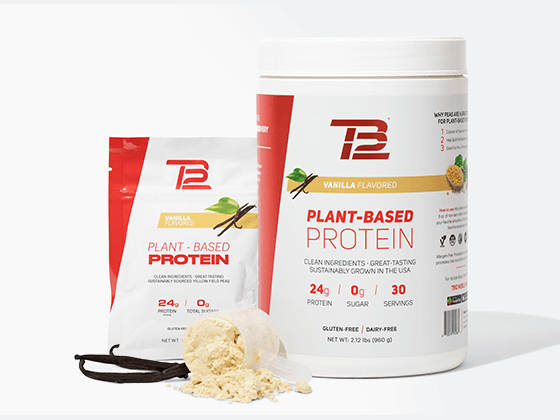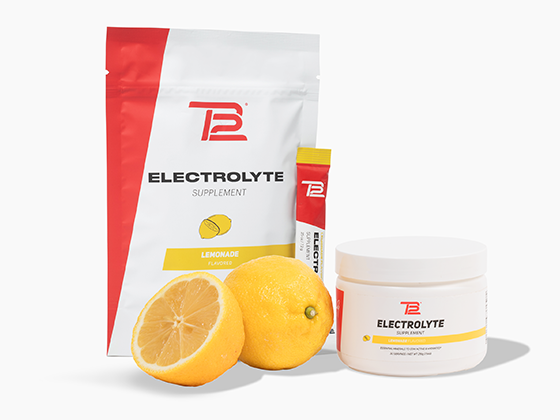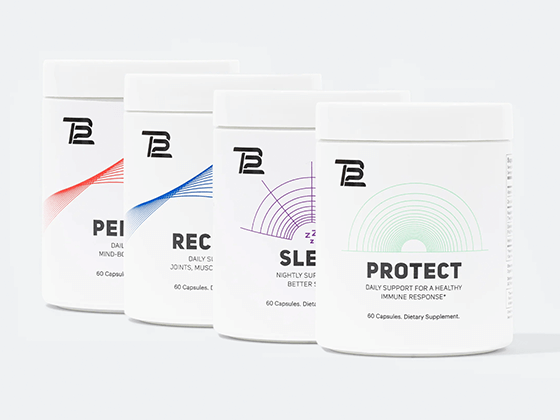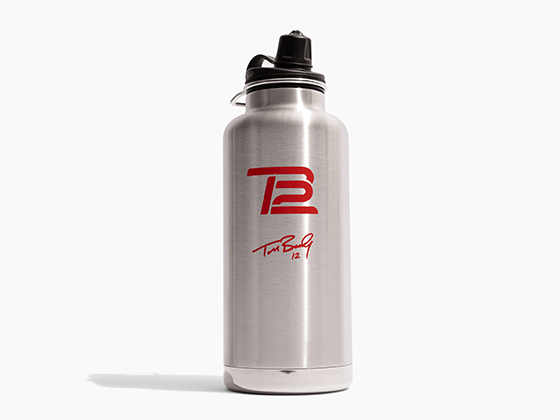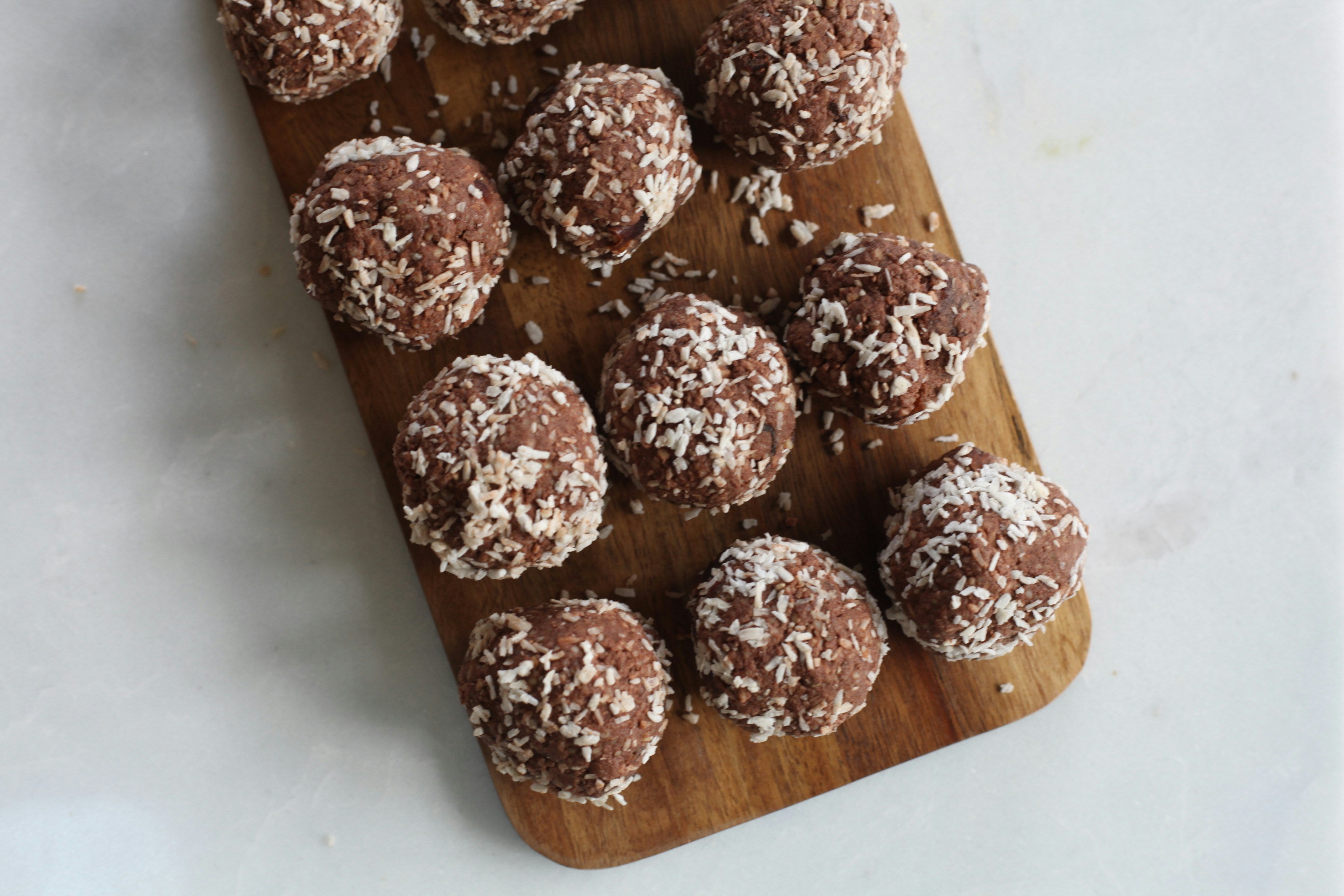ELECTROLYTES help you get the most from your water, which is the key to proper hydration.
During the recovery period after a workout, or while bouncing back from a cold or flu, your body works to repair itself and gain strength. While there are many things you can do to promote recovery throughout your body, proper hydration can have the most significant impact on your ability to regain cellular balance.
HOW DOES YOUR BODY LOSE ELECTROLYTES?
PHYSICAL ACTIVITY
If you’re an active person who sweats — and we know you do — then you’re losing sodium ions when you work out. This is because your body uses salt to power osmosis and push water through your sweat glands onto your skin.
ILLNESS
Illness is another common cause of electrolyte loss, often because of the body's natural tendency to sweat heavily when the immune system is fighting off a sickness.
You can get dehydrated quickly while sick, often without realizing it – and illnesses like the flu and stomach viruses that cause vomiting can accelerate that dehydration even more quickly and drain your body of these essential minerals. An electrolyte solution that is free of sugar and harmful additives, like our TB12 Electrolyte blend, is the purest way to replenish these minerals as you recover from an illness.
WHAT HAPPENS WHEN YOU DON'T HAVE ENOUGH ELECTROLYTES?
When you’re running low on sodium (Na+) ions, your brain knows what it wants to say to your muscles, but the message is blocked. There’s a special word for this condition – “hyponatremia” — hypo meaning “low” and natremia meaning “sodium", and it's extremely dangerous. Symptoms of hyponatremia include vomiting, nausea, headache, confusion, low energy, drowsiness, fatigue, restlessness, irritability, muscle weakness, spasms, and seizures. You’ve probably experienced hyponatremia on a smaller scale before in the form of muscle cramps.
WHAT ABOUT OTHER ELECTROLYTES?
Low levels of potassium, calcium, chloride, and magnesium can also hold you back from an active lifestyle.
- Potassium deficiency can lead to weakness, confusion, and — in the worst case — paralysis.
- Low calcium can lead to muscle spasms.
- Magnesium deficiency causes muscle cramps, confusion, and nausea.
- Low chloride can show up as an irregular heartbeat.
All of these symptoms have one thing in common: poor muscle recovery.

HOW DOES YOUR BODY MANAGE ITS ELECTROLYTE LEVELS?
Since your body can’t just magically produce sodium, proper recovery requires that you replace these ions. The best way to do that is to consume electrolytes in liquid form during your workout to stay hydrated, and post-workout to refuel—allowing your muscles to properly recover.
WHERE CAN YOU GET ELECTROLYTES?
One source of electrolytes is the food you eat. Essential electrolytes are found in a wide variety of plant and animal food sources.
SODIUM
Sodium is easy to find because there’s salt added to most of the foods we eat. Despite the fact that most Americans (i.e., 90 percent) already ingest enough to put themselves at increased risk for hypertension, athletes still need to replenish their sodium after a bout of intense exercise. This is because athletes readily lose more sodium in sweat than the “recommended daily amount of sodium” when they exercise.
POTASSIUM
Potassium is found in leafy greens and vegetables like spinach, parsley, lettuce, broccoli, peas, lima beans, tomatoes, and potatoes, especially the skins. Oranges, bananas, apples, avocados, raisins, and apricots also contain potassium. Potassium can also be found in fish and meats in high amounts.
CHLORIDE
Chloride tends to come hand in hand with sodium as salt, but it can also be found in tomatoes, lettuce, and olives.
MAGNESIUM
Magnesium can be found in many of the same places as potassium. Leafy greens, figs, nuts, avocados, bananas, raspberries, peas, broccoli, cabbage, green beans, artichokes, asparagus, brussel sprouts, and several kinds of fish contain high levels of magnesium.
CALCIUM
Foods rich in calcium include broccoli, cabbage, okra, breads or grain products made with fortified flour, and any fish with edible bones (such as sardines).
A HEALTHY DIET ISN’T ALWAYS ENOUGH FOR OPTIMAL RECOVERY
The best way to get the nutrients your body needs is to focus on eating real food, preferably organic, and mostly plant-based. But despite our best efforts, perfect nutrition isn’t always possible. All this is the primary reason for TB12 supplements: to ensure our bodies get what they might be lacking through our regular diet. We believe in smart supplementation to help boost certain nutrients.
Any athlete with a commitment to optimal performance needs to get an adequate supply of dietary electrolytes, but let’s be honest: keeping track of your daily magnesium intake is not what you signed up for. That’s why we offer an optimal mix of electrolytes that you can add to any drink to ensure you’re getting exactly what you need — all the time.
We did that work so you can focus on yours.
TB12 Electrolytes include all the minerals your body needs to function at its best – sodium, potassium, magnesium, chloride, sulfate, calcium, silicon, selenium, phosphorus, iodine, chromium, manganese, iron, copper, molybdenum, vanadium, and zinc – without the high added sugar commonly found in sports drinks and other electrolyte beverages.
ELECTROLYTES & RECOVERY MATTER
Post-workout rehydration has a large impact on recovery. It's imperative to get in the habit of continually rehydrating to replenish the liquids, electrolytes, and sodium lost during exercise. If you keep your focus on electrolytes and hydration you will reap the recovery rewards.
The body is one integrated system, and without an adequate supply of electrolytes, the whole system goes down. So, hydrate smarter, perform better, and recover faster. Don’t let a single missing mineral keep you from performing your best.

